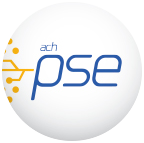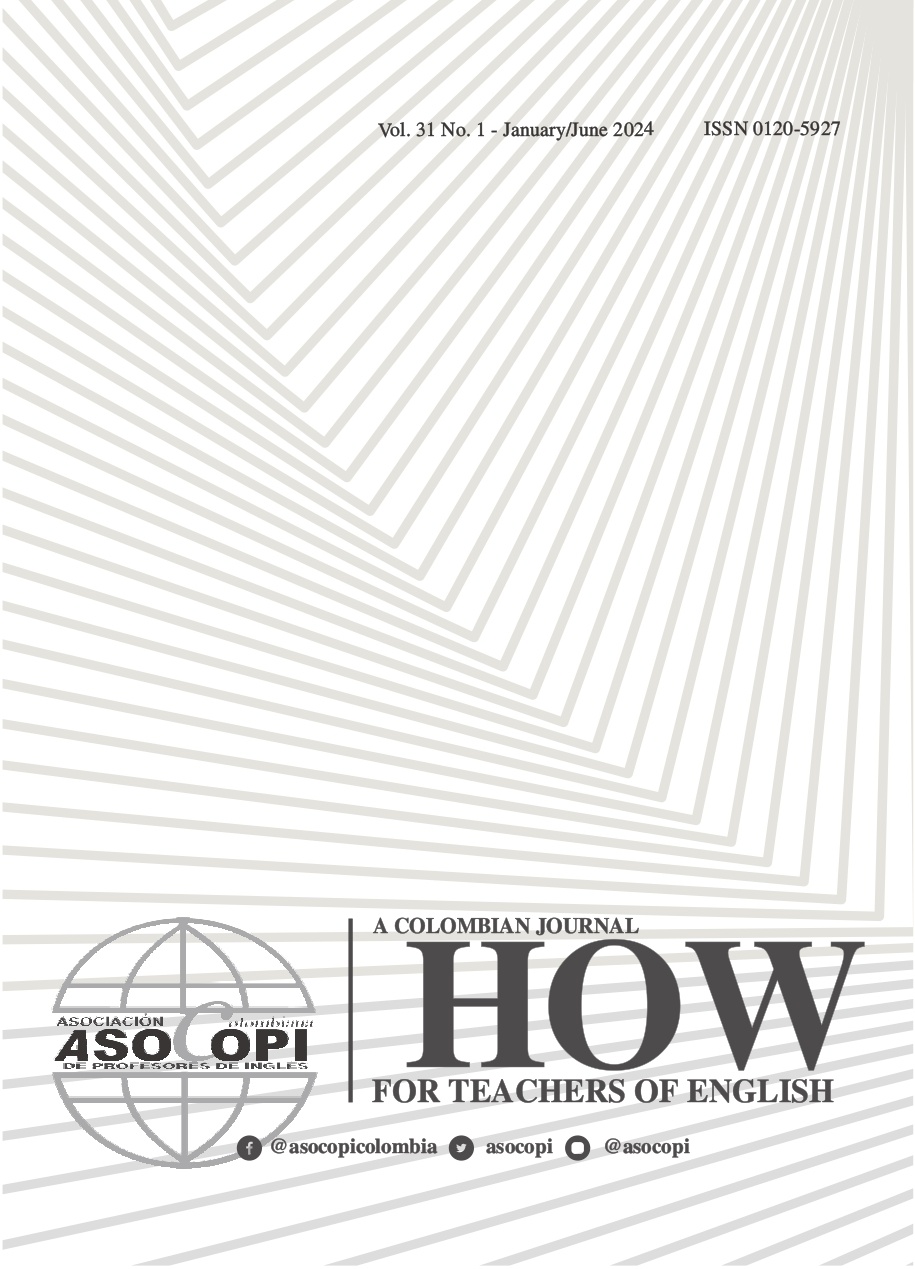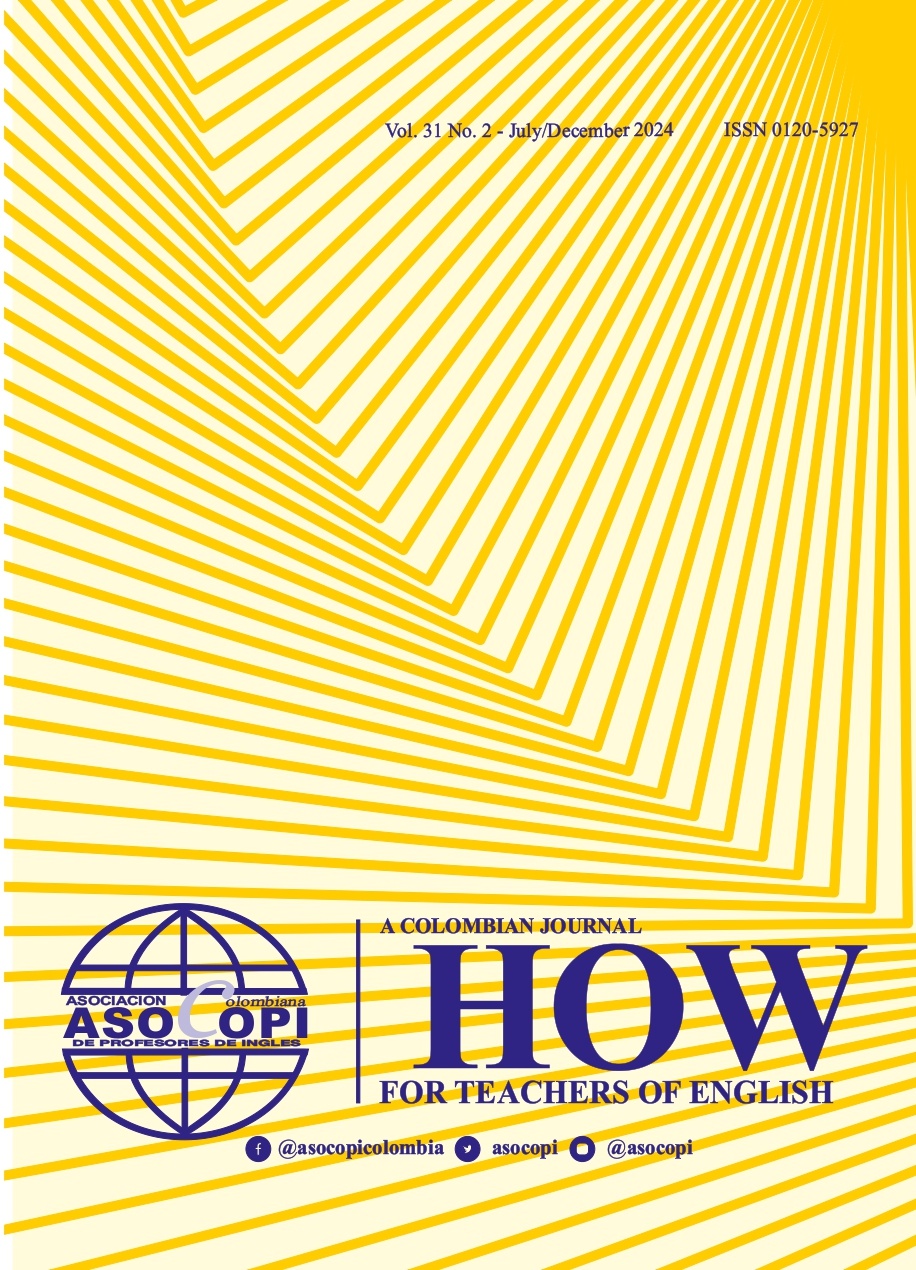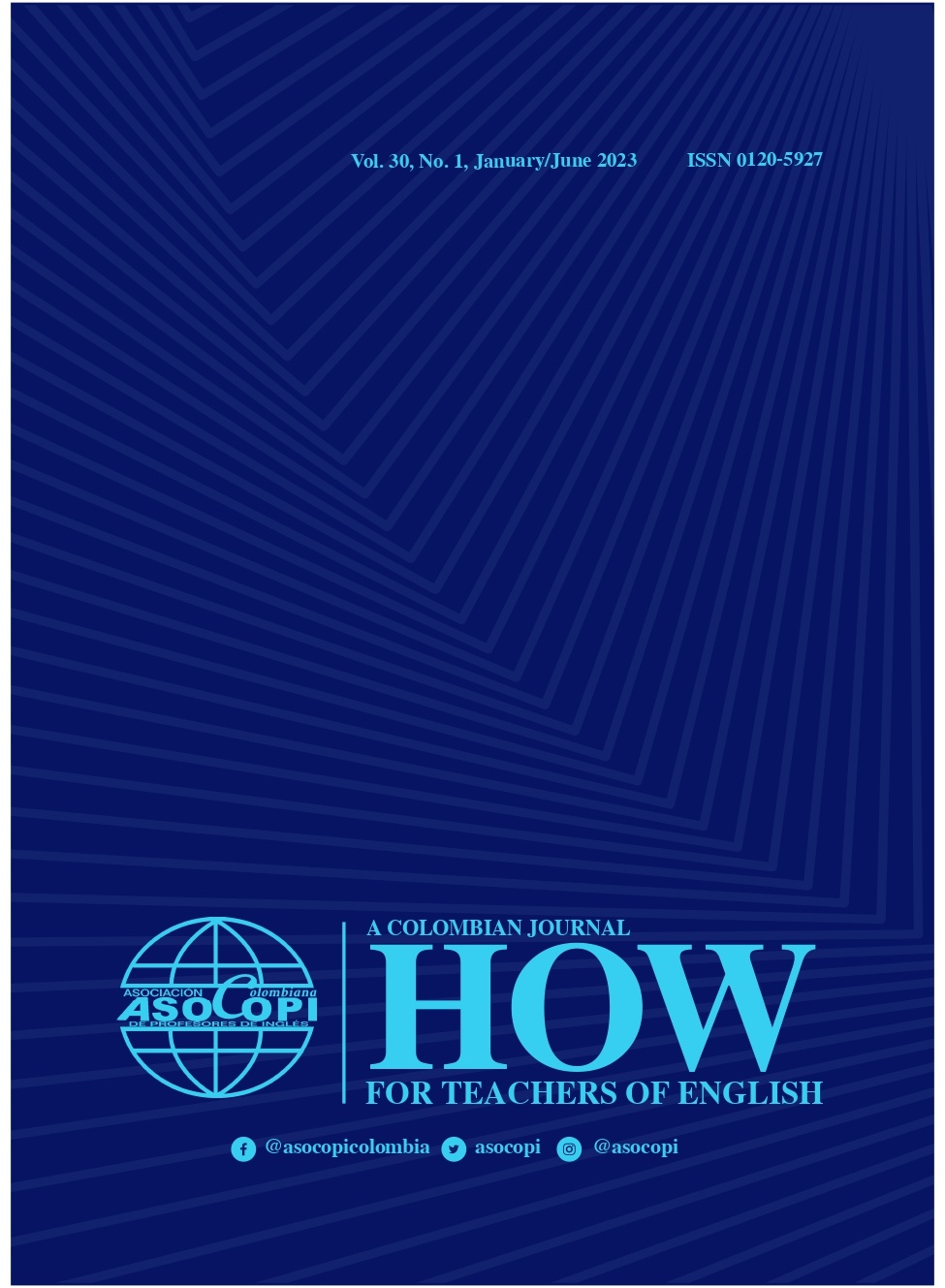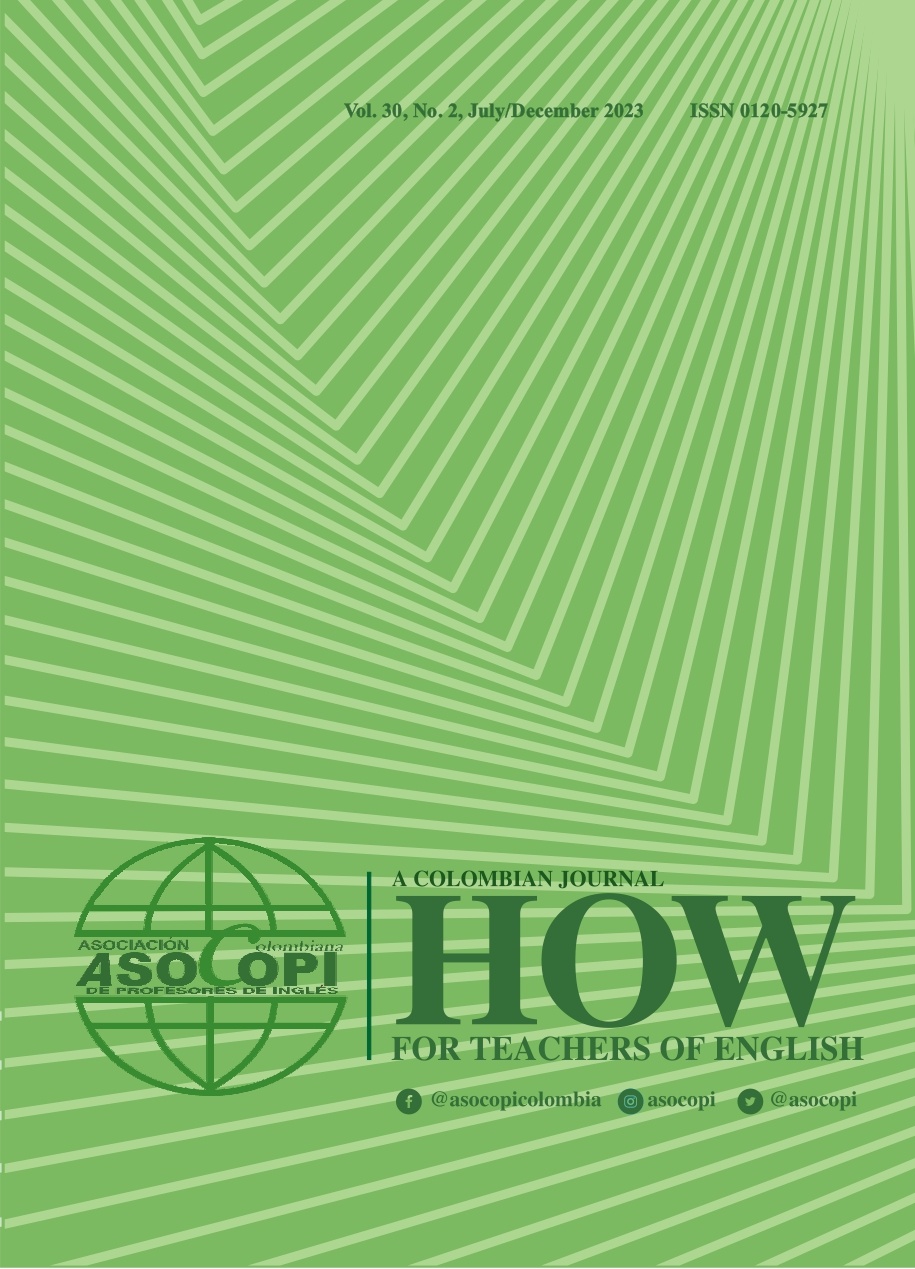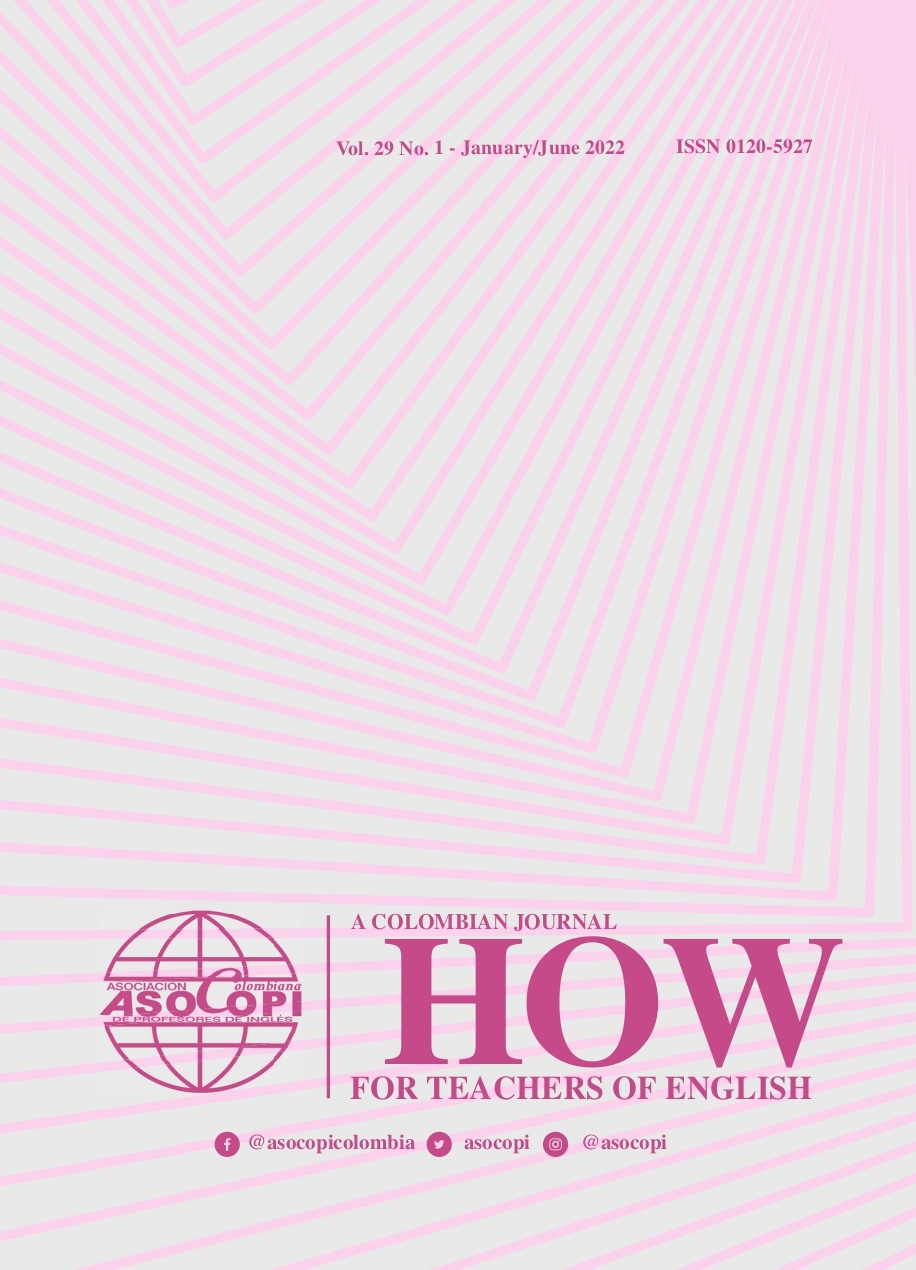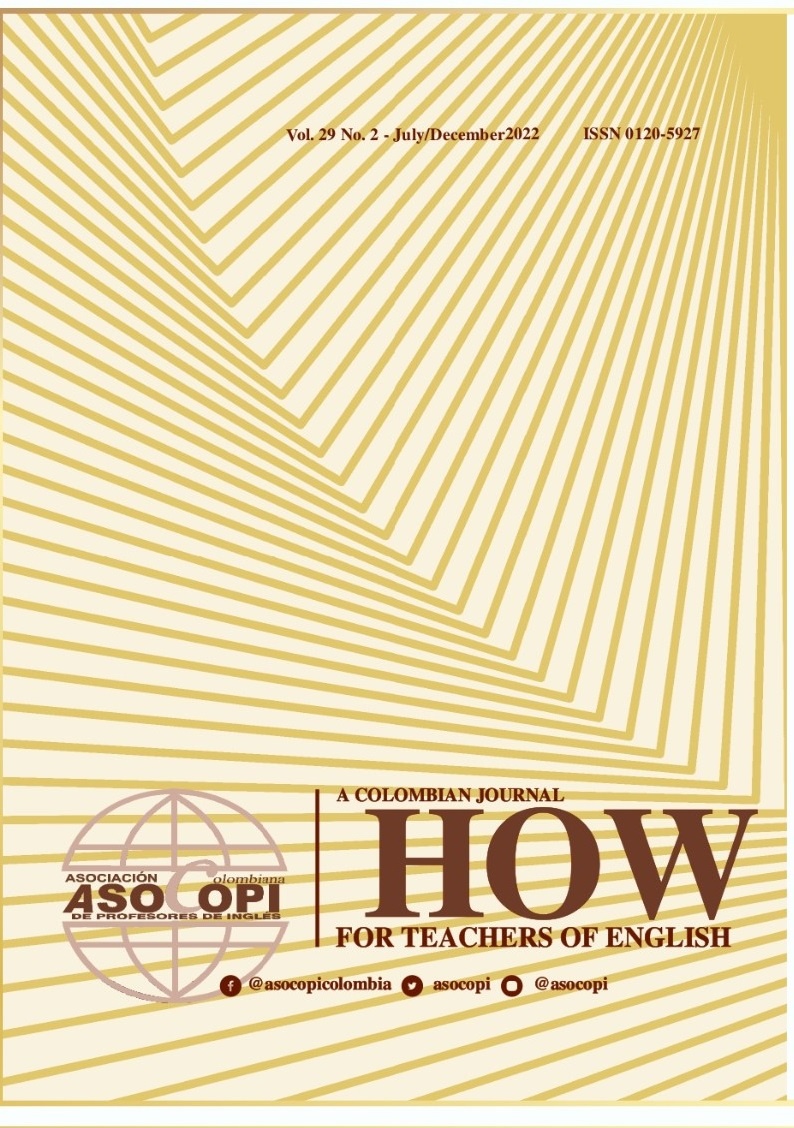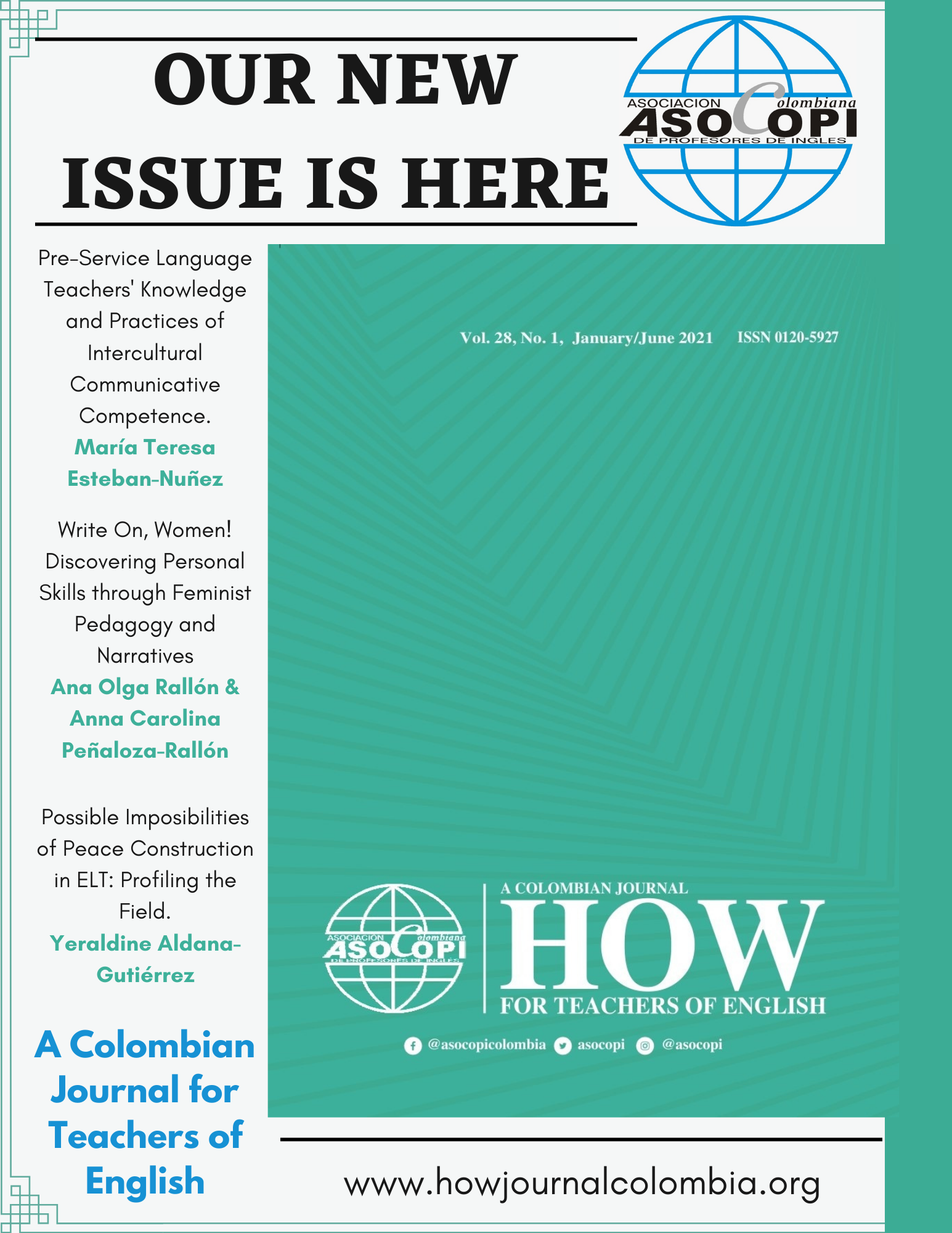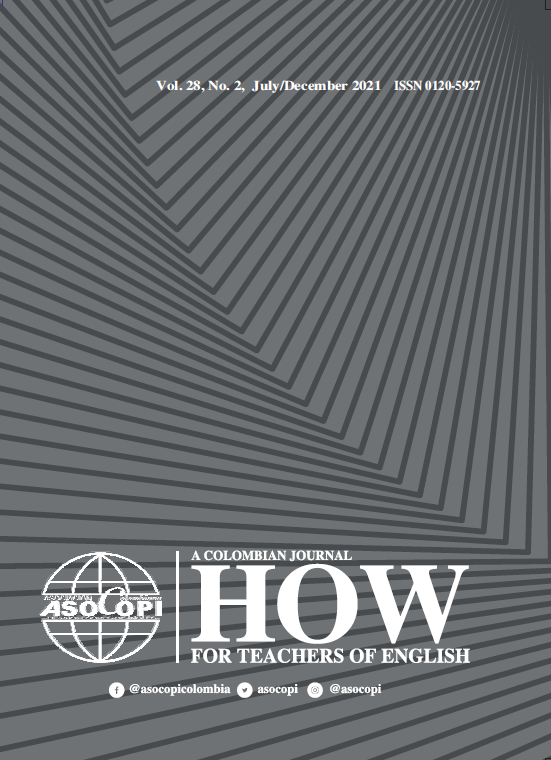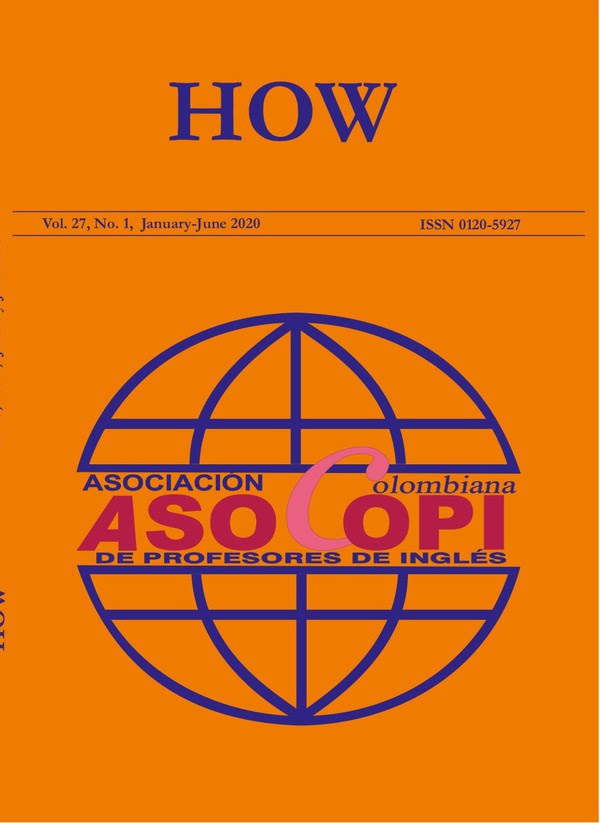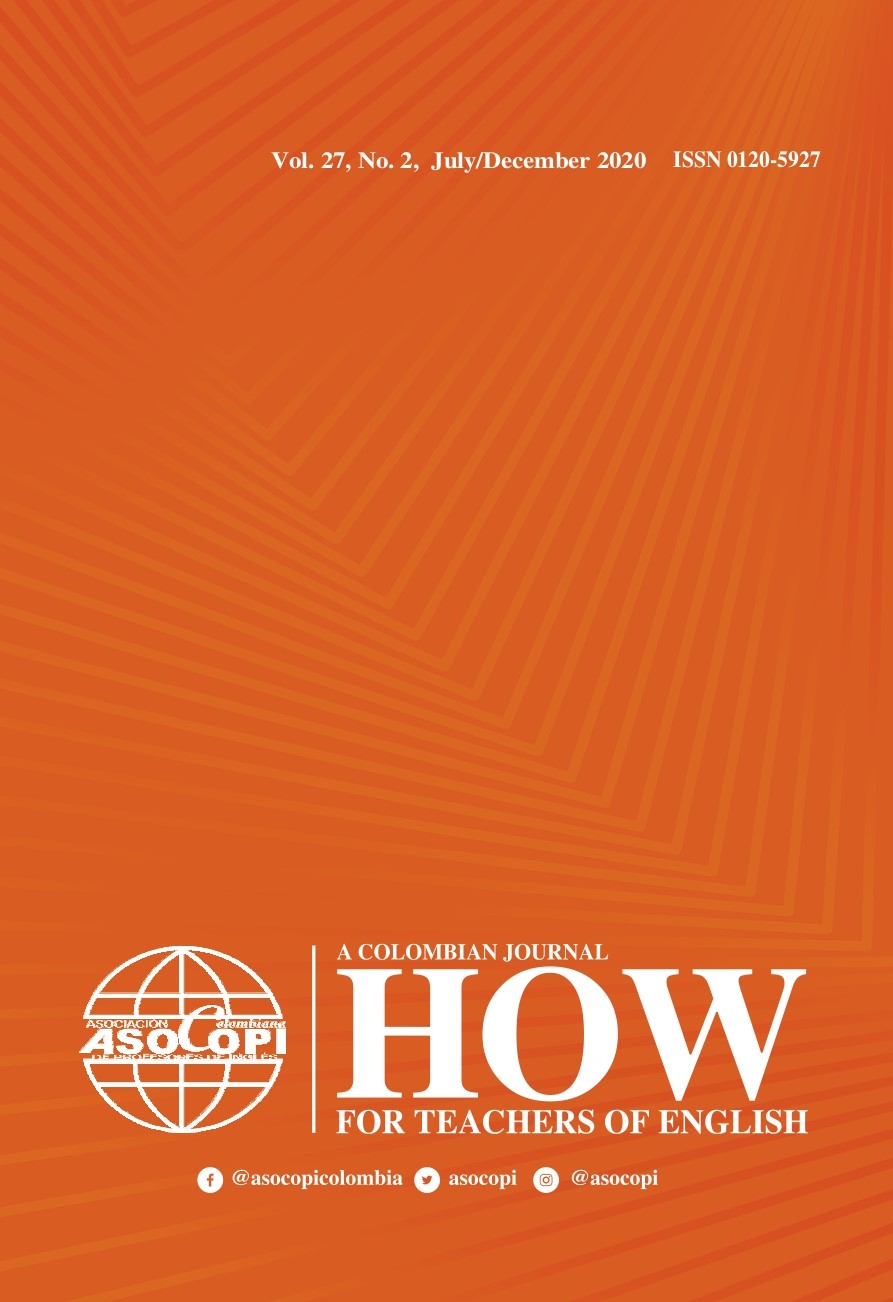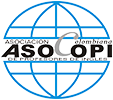HOW JOURNAL
Biannual publication ISSN 0120-5927
HOW Journal is a biannual publication by and for teachers of English who wish to share outcomes of educational and research experiences intended to add understanding to English language teaching practices (ELT). Therefore, the journal falls within the field of education and, specifically, the teaching and learning of English as a second, foreign, additional, or international language (ESL, EFL, EAL, EIL).
HOW Journal is an academic publication led by ASOCOPI, the Colombian Association of Teachers of English. The journal is indexed in the Education Resources Information Center (ERIC), Latindex, Redalyc, SciELO Colombia, and Publindex-Minciencias.
It is also registered with Citas Latinoamericanas en Ciencias Sociales y Humanidades (CLASE), Dialnet, the Directory of Open Access Journals (DOAJ), EBSCO, Educational Research Abstracts (ERA), Emerging Sources Citation Index (Clarivate Analytics), InfoTrac GALE Cengage Learning Informe Académico, and the MLA International Bibliography.
THE HOW JOURNAL INCLUDED IN THE EMERGING SOURCES CITATION INDEX (THOMSON) & REDALYC
HOW Journal - Special Issue - ASOCOPI's 60th Anniversary, Now Available!
Dear, ELT Community In celebration of ASOCOPI’s 60th Anniversary, we are proud to announce the release of the Special Issue of the HOW Journal. This commemorative edition brings together valuable reflections, research, and contributions that highlight six decades of commitment to English Language Teaching in Colombia. By purchasing this special issue, you not only gain access to high-quality academic content but also support the sustainability of the journal, helping us continue to provide a space for teachers and researchers to share their work.
Don’t miss the opportunity to own this unique edition!
COP $30,000 (pick up at the Conference)
COP $45,000 (home delivery included, Main cities in Colombia)
To order:
1. First, complete your payment in the Payments section.
2. Then, fill out the request form to finalize your order
Support the sustainability of the journal and be part of ASOCOPI’s history!
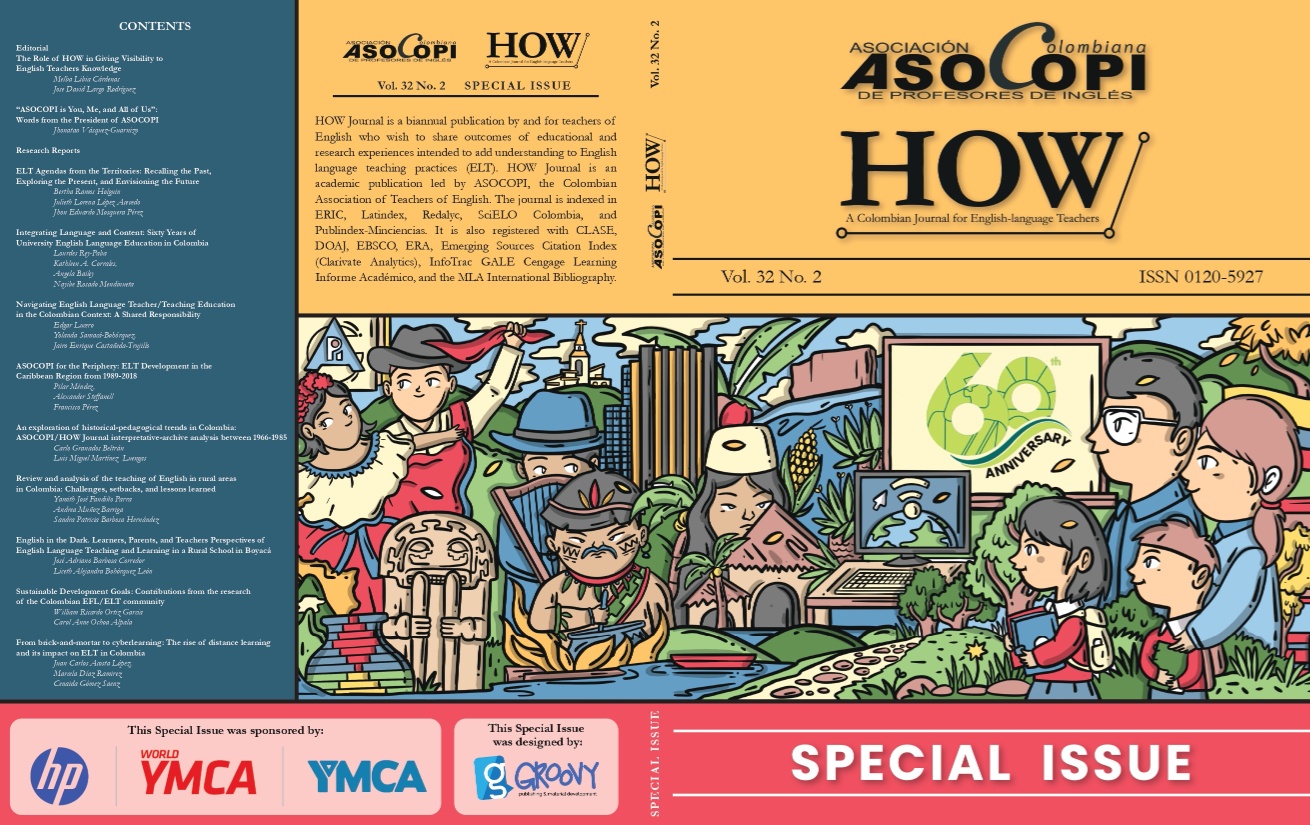
Special Issue 2025
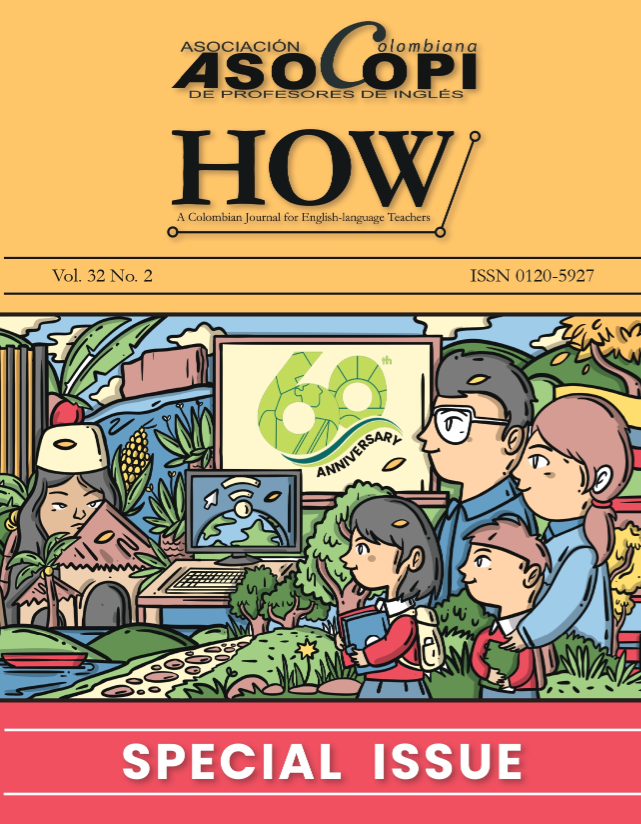
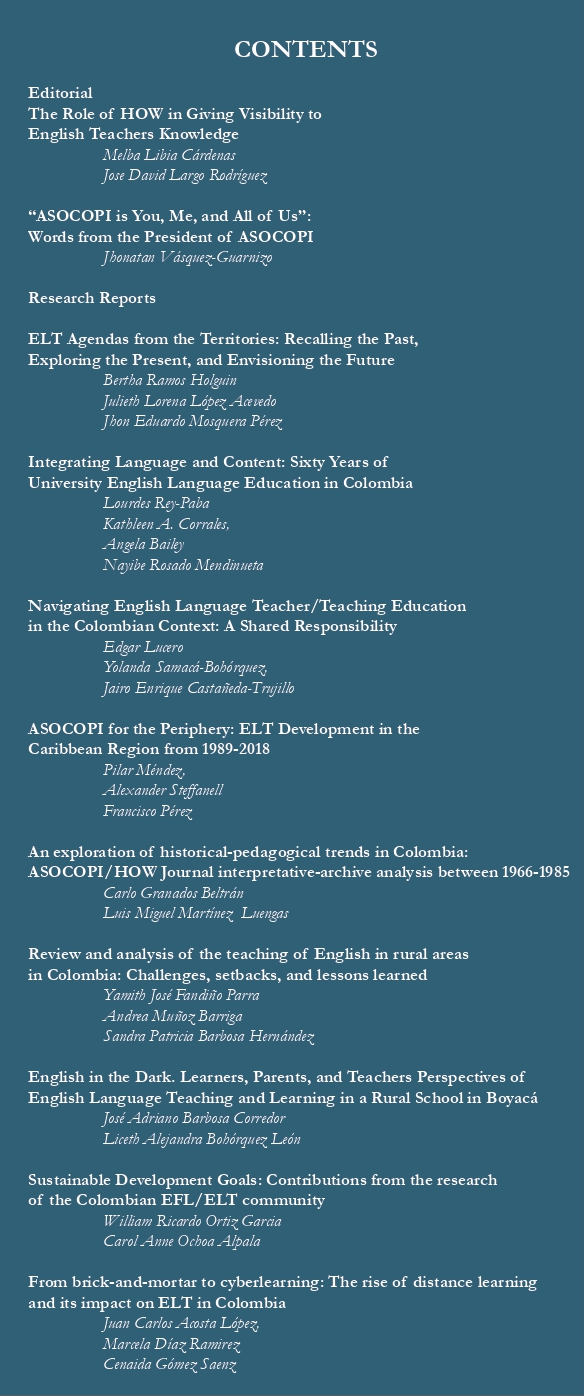
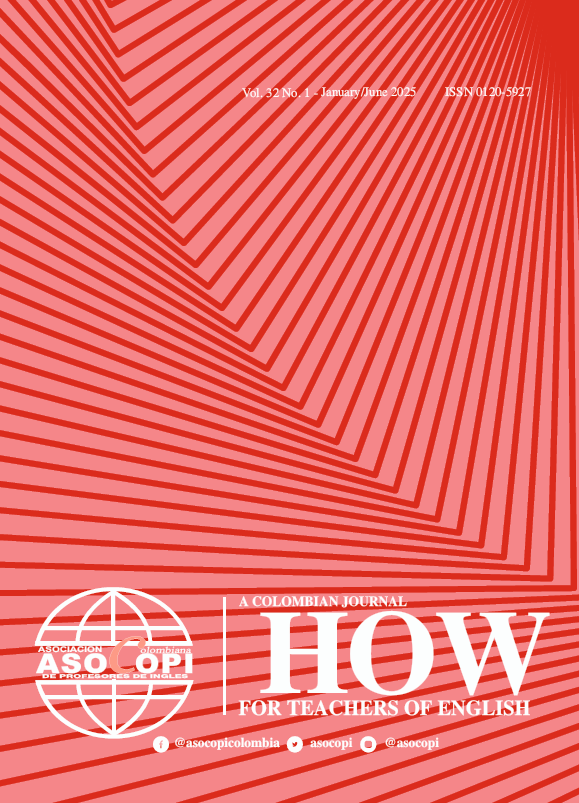
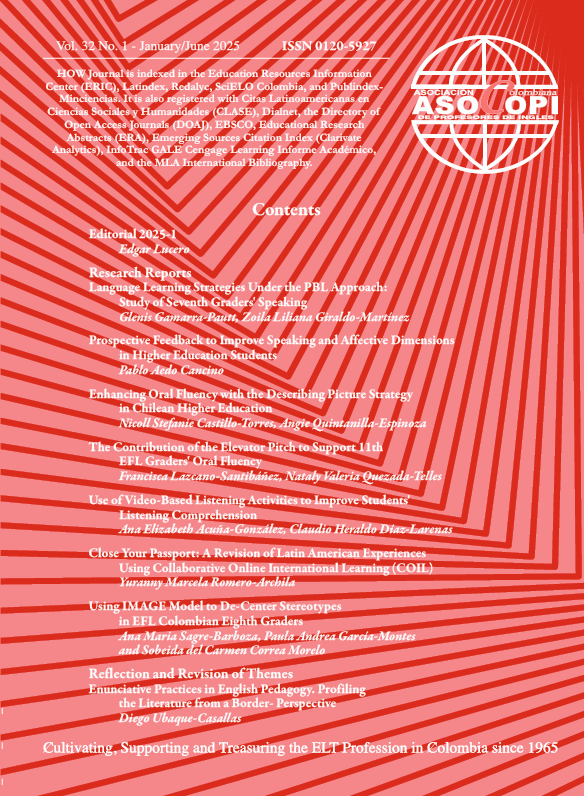
HOW 2024
Editorial Edgar Lucero-Babativa, Miryan Cristina Vera Peña
- Revised Bloom’s Taxonomy to Analyze the Scope of CLIL Classes with Children. William Ricardo Ortiz-Garcia, Zulma Carolina Navarrete-Villarraga
- Information Literacy and Discourse Analysis for Verifying Information among EFL Learners. Yaseen Azi, Sami Abdullah Hamdi, Mohammed Okasha
- Exploring Listening Assessment in a Colombian EFL Context: A Case Study. Ana Gutiérrez-Rojas, Nayibe Rosado-Mendinueta
- Factors Contributing to EFL Learners’ Construction of Arguments in Culturally Infused Discussions. Pablo Vergara-Montes, Luzkarime Calle-Díaz
- Pedagogies of Well-being: A Narrative Perspective to Explore Two English Student-Teachers’ Experiences Diego Ubaque-Casallas
- Critical Reading inside a Cross-curricular Approach. Rubiela Cruz-Roa
- The Contribution of Board Games to Pre-Kindergarten Students’ Oral Production. Leslie Werlinger B., Maria-Jesus Inostroza A.
- Reflections and Revision of Themes Addressing Emotional Aspects in the Second Language Learning Processes. Luis F. Cisneros
Research Reports
-
Dios Nos Hizo Diferentes.
Angie Marroquin, Anna Carolina Peñaloza
-
Inner Speech and Speed Reading.
Francy Lorena García, Edgar Willian Jurado Soto
-
The Use of a Storyboard Platform to Enhance Reading Comprehension.
Flora Isabel Mandiola-Villalobos, Maria Angelica Inostroza-Macaya and Danisa Thamara Salinas-Carvajal.
-
Enhancing Reading Skills through Scaffolding Strategies in Eighth-Grade EFL Students.
Hernán Gabriel Pérez Buelvas
.
-
Configuring Collocations and Prepositions in Essay Writing through a Corpus-based Strategy.
Leonardo Alba-López.
-
The Effect of Teachers’ Age on Their Beliefs about Action Research.
Vahid Rahmani Doqaruni
.
-
Reflection and Revision of Themes Critical Perspectives in English Language Teaching.
Angela Patricia Velásquez-Hoyos, Luis Herney Villegas López
Research Reports
-
Participants’ Narratives of the Fulbright FLTA Program on their Intercultural
and Professional Experience Angela Patricia Velásquez-Hoyos, Lizeth Andrea Martínez-Burgos.
-
Embodied Femininities in Language Pedagogy. A Study of Two
Language Teachers’ Karen Tatiana Camargo-Ruiz, Daniel Aponte-Moniquira
-
Portraying Students’ Emotions in English Conversation Clubs
at a Colombian University Anthony Ceron, Norbella Miranda.
-
English Teachers’ Perceptions of a Language Assessment Literacy Course
Las Frank Giraldo, Daniela Escalante-Villa, Daniela Isaza-Palacio
-
EFL Teacher Professional Development Needs: Voices from the Periphery Marta Isabel Barrientos-Moncada, Natalia Andrea Carvajal-Castaño
.
HOW 2022
Vol. 29, January/June 2022
* Learning Needs of English and French Students from a Modern Languages Program at a Colombian..
*Social Entrepreneurship Projects in the English Class: A Pandemic Multimodal Experience
*Task-based Teacher Development Program in a Rural Public School in Colombia
*Promoting Dialogic Action through the Expansion of English Language Learners’ Communicative....
*Speaking in Worlds of Adventure: Tabletop Roleplaying Games within the EFL Classroom
*Inflamed EFL Learning: A Qualitative Study to Explore Factors Affecting EFL Learning
*Effect of Backward Summary Technique on Reading Comprehension Enhancement among Non-English Majors
*Reflections and Revision of Themes The Use of Social Networks in L2 Instruction: Discussing its Opportunities and Obstacles*Knowledge-Base in ELT Education: A Narrative-Driven Discussion
*An Overview of Dominant Approaches for Teacher Learning in Second Language Teaching
SPECIAL ISSUE
*Colombian ELT Community and Scholarship: Current Pathways and Potency Edgar Lucero, Adriana Castañeda-Londoño
*Reflections and Revision of Themes 25 Years of HOW: A Celebration of Language Teaching and Learning. Ana Clara Sánchez-Solarte
*Publishing in Local ELT Journals: A Way to Decolonialize Knowledge. Melba Libia Cárdenas *Language and Literacy Practices in Teacher Education: Contributions from a Local Agenda. Amparo Clavijo-Olarte
*Criticality and English Language Education: An Autoethnographic Journey. Raúl Alberto Mora *Language Assessment Literacy: Insights for Educating English Language Teachers through Assessment. Frank Giraldo
*Comprehending Interculturality and its Future Directions in English Language Teaching and Teacher Education in the Colombian Context. Bertha Ramos-Holguín *Culture and Interculture: What are we talking about? Challenges for the ELT Community. Carlos Rico-Troncoso
*Emergence and Development of a Research Area in Language Education Policies: Our Contribution to Setting the Grounds for a Local Perspective on Policymaking. Carmen Helena Guerrero-Nieto, Álvaro Hernán Quintero-Polo
*On the Professional Development of English Teachers in Colombia and the Historical Interplay with Language Education Policies. Adriana González-Moncada
*Local Identity Studies of Gender Diversity and Sexual Orientation in ELT. Harold Castañeda-Peña *Reconstructing a Personal Story about Being a Teacher Educator and a Researcher. Jairo Enrique Castañeda-Trujillo
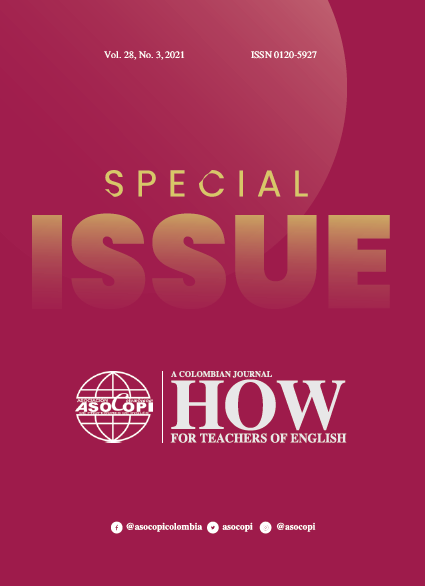
Vol. 28, January/June 2021
*Pre-Service Language Teachers’ Knowledge and Practices of Intercultural Communicative Competence
*
Understanding
Basic English
Users’
Classroom Interaction
:
A Case Study
*Digital Skills for Communication and Content Creation: Can B-learning Greatly Influence Them?
*The Effectiveness of Using the Lexical Approach to Developing Ethiopian EFL Learners’ Vocabulary Competence
*English Teaching Methodologies of Modern Languages Graduates from a University in Colombia
Vol. 28, July/December 2021
*Local Epistemological Perceptions that Underlie EFL Literature and Teaching Practices in Colombia
*Language Pedagogy and Identity. Learning from Teachers’ Narratives in the Colombian ELT
*Pre-Service English Language Teachers’ Levels of Reflectivity during the Process of Identity Construction in Pedagogical Practicum: A Snowball?
*Dyslexic Individuals’ Narratives on their Process of Becoming English Language Teachers
*Theme-Based Teaching to Promote Oral Fluency in a University in Colombia
*Promotion of Critical Reading through the Use of Political Cartoons
*University Students’ Attitudes towards the Use of YouTube in the EFL Classroom
*Feminism in a Female Teacher’s Discourse in an EFL Classroom
Vol. 27, January/June 2020
*Linguistic Colonialism in the English Language Textbooks of Multinational Publishing Houses
*Reflections and Revision of Themes
A Self-Dialogue with the Thoughts of Paulo Freire: A Critical Pedagogy Encounter
Vol. 27, July/December 2020
*Non-normative corporalities and transgender identity in English as a Foreign Language student teachers
*Reflections and Revision of Themes
Inquiring into the Coloniality of Knowledge, Power, and Being in EFL Textbooks


